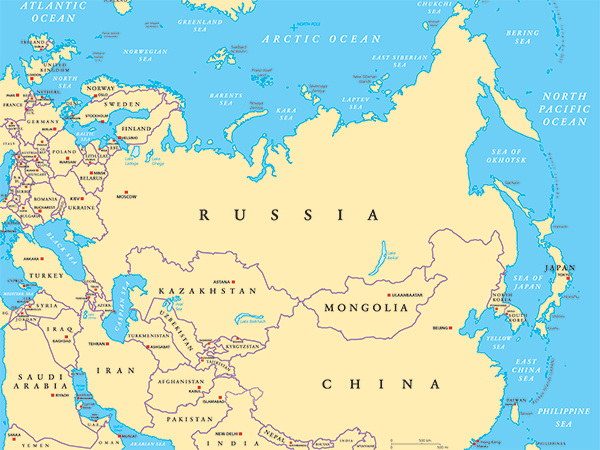The Harriman Institute and the Weatherhead East Asian Institute for hosted The Hugh Borton and Philip E. Mosely Distinguished Lecture on Eurasia with Christopher Hill, Assistant Secretary of State, Bureau of East Asian and Pacific Affairs. Moderated by Myron L. Cohen, Director of the Weatherhead East Asian Institute.
Christopher R. Hill was sworn in as Assistant Secretary of State for East Asian and Pacific Affairs on April 8, 2005. Ambassador Hill is a career member of the Senior Foreign Service whose most recent assignment was as Ambassador to the Republic of Korea. On February 14, 2005, he was named as the Head of the U.S. delegation to the Six-Party Talks on the North Korean nuclear issue. Previously he has served as U.S. Ambassador to Poland (2000-2004), Ambassador to the Republic of Macedonia (1996-1999) and Special Envoy to Kosovo (1998-1999). He also served as Special Assistant to the President and Senior Director for Southeast European Affairs in the National Security Council.
Earlier in his Foreign Service career, Ambassador Hill served tours in Belgrade, Warsaw, Seoul, and Tirana, and on the Department of State’s Policy Planning staff and in the Department’s Operation Center. While on a fellowship with the American Political Science Association he served as a staff member for Congressman Stephen Solarz working on Eastern European issues. He also served as the Department of State’s Senior Country Officer for Poland. Ambassador Hill received the State Department’s Distinguished Service Award for his contributions as a member of the U.S. negotiating team in the Bosnia peace settlement, and was a recipient of the Robert S. Frasure Award for Peace Negotiations for his work on the Kosovo crisis. Prior to joining the Foreign Service, Ambassador Hill served as a Peace Corps volunteer in Cameroon.
Ambassador Hill graduated from Bowdoin College in Brunswick, Maine with a B.A. in Economics. He received a Master’s degree from the Naval War College in 1994. He speaks Polish, Serbo-Croatian, Macedonian, and Albanian.
Myron L. Cohen, Director of the Weatherhead East Asian Institute and Professor of Anthropology, has conducted extensive fieldwork and other research in Taiwan and mainland China. One of his field research foci has been traditional family organization and patterns of change during modern times. His current major research project involves economic culture with a focus on the prevalence of written contracts in the social life of one local rural community in late imperial China. Other research interests in the context of social change include Chinese kinship, popular religion, community organization, the interconnections between local society and state organization and ideology, the cultural foundations of modern Chinese nationalism, and social stratification.
Professor Cohen’s publications include “Kinship, Contract, Community, and State: Anthropological Perspectives on China” (Stanford University Press, January 2005); “House United, House Divided: Myths and Realities, Then and Now” in House, Home, Family: Living and Being Chinese (University of Hawai’i, late 2004). Among his earlier works are House United, House Divided: The Chinese Family in Taiwan (Columbia, 1976); “Family Management and Family Division in Contemporary Rural China” China Quarterly 130 (June, 1992); “Being Chinese: The Peripheralization of Traditional Identity” in Tu Wei-ming (ed.) “The Living Tree: The Changing Meaning of Being Chinese Today” (Stanford, 1994); “Writs of Passage in Late Imperial China: The Documentation of Practical Understandings in Minong, Taiwan” in Madeleine Zelin, Robert Gardella, Jonathan Ocko, (eds.), “Contract and Property in Late Imperial and Republican China” (Stanford, 2004).
Professor Cohen received his PhD in anthropology from Columbia in 1967, after having joined the Columbia faculty in 1966.


